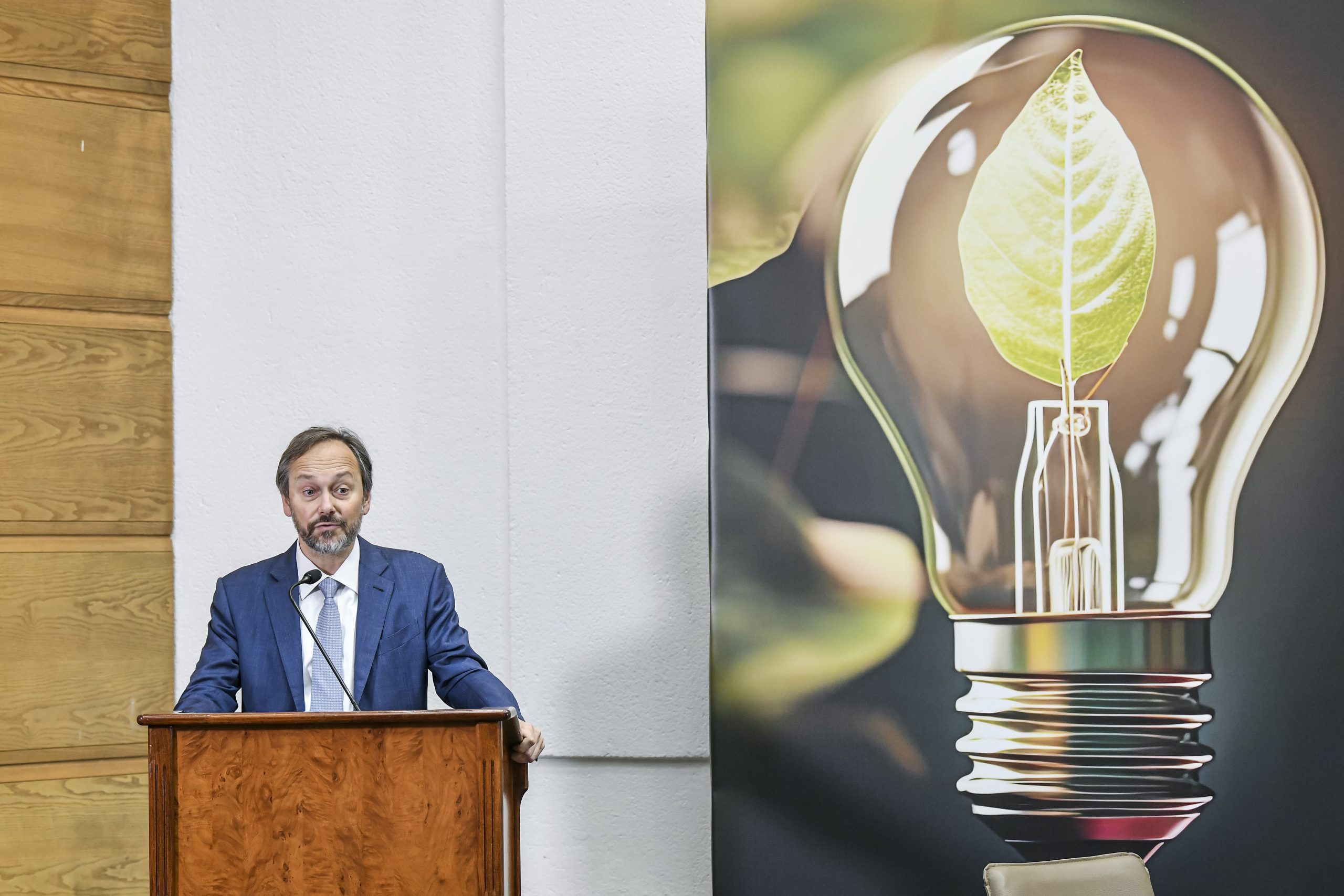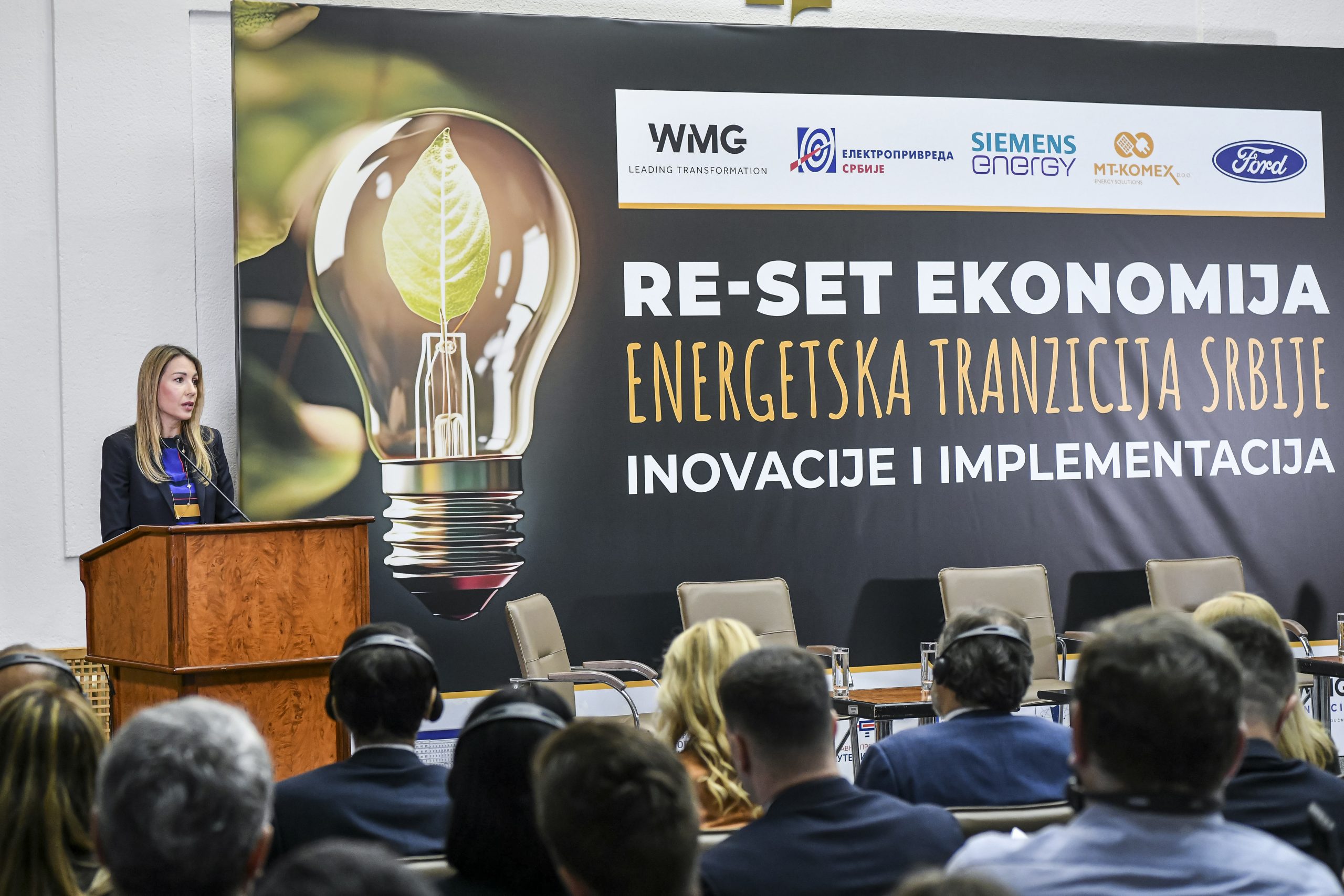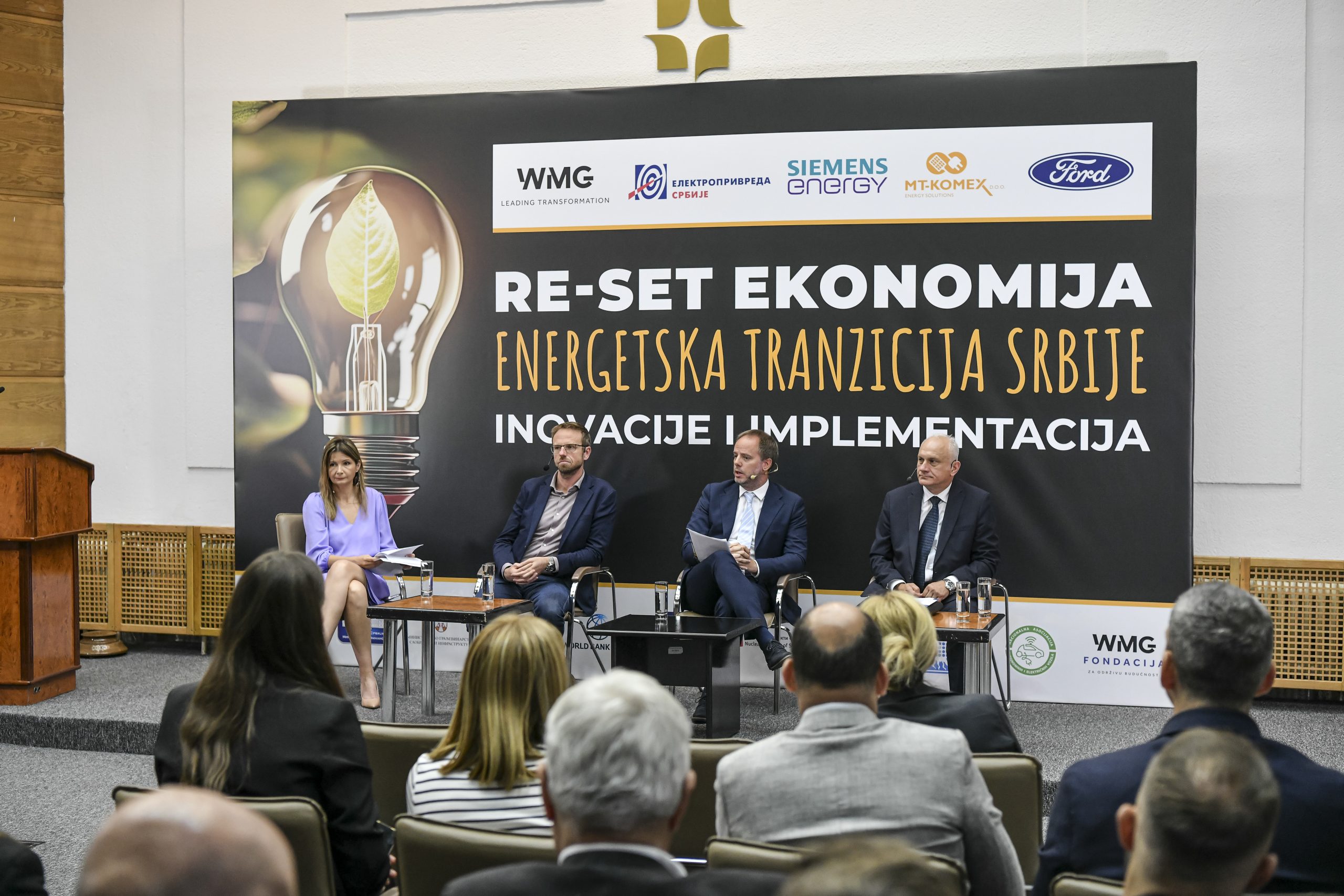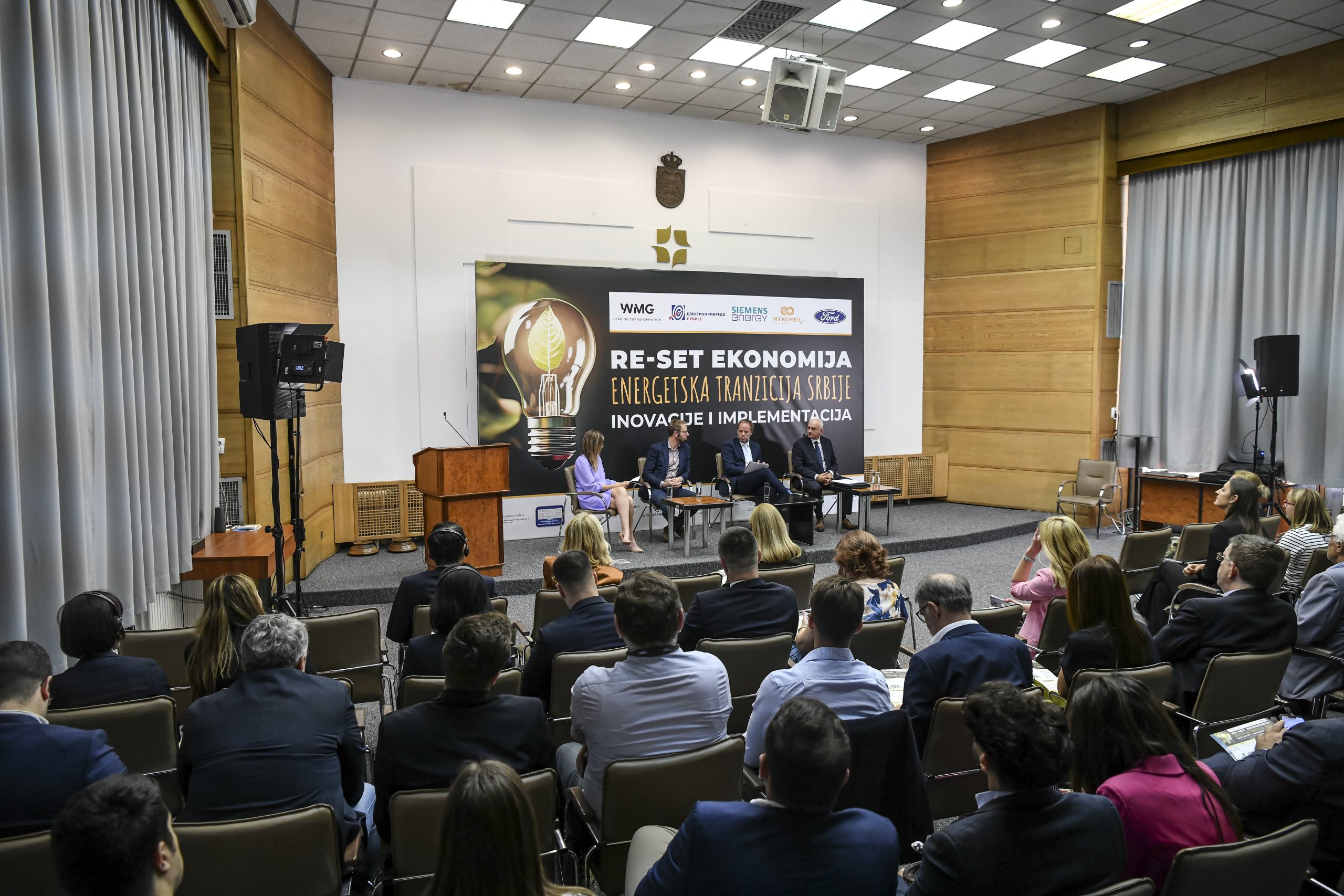Improvement of energy efficiency, renewable sources, e-mobility, and clarification of nuclear energy dilemma are just some of the questions on the path of energy transition, and Serbia is not alone there. With the support of the EU, numerous projects are being developed, and the assistance is not lacking in the process of improving the institutional framework.
Emanuele Giaufret, Ambassador of the European Union to Serbia, Dubravka Đedović Handanović, Minister of Mining and Energy, Akira Imamura, Ambassador of Japan in Serbia and Nicola Pontara, Country Manager of the World Bank Office in Serbia opened the conference “Energy Transition in Serbia – Innovation and Implementation”, where eminent experts observed the current situation, challenges and development potential of Serbia.
The new Reform and Growth Facility for the Western Balkans, which is part of the Growth Plan of the EU, aims to accelerate essential reforms and integration with the EU Single Market, and to bring EUR 6 billion to the Western Balkans by 2027. For Serbia, the funds for reforms and growth will support, among others, energy transition and direct the country towards a more resilient and cleaner economy, emphasized Emanuele Giaufret, Ambassador of the European Union to Serbia and added:

“The EU and Serbia are not alone in this global effort to start a green transition. We are really joining efforts together with our international partners, bilateral donors and international financial institutions, in order to encourage green energy and energy efficiency projects in Serbia”, said Giaufret.
Dubravka Đedović Handanović, Minister of Mining and Energy, reminded that the energy transition creates new jobs and encourages economic development. The development of the sector of renewable energy sources requires new skills and knowledge, which creates opportunities for education and youth employment in Serbia – she stated.
“According to Eurostat data from 2022, Serbia has a higher share of renewable energy sources in electricity production (30.14%) than many EU countries. Only through joint efforts can we achieve the goals of the energy transition and build a future that is sustainable, secure and prosperous for all of us. I would like to thank the EU for being the largest donor to Serbia’s energy sector”, said Đedović Handanović.

Akira Imamura, Ambassador of Japan to Serbia, said that we are all facing growing geopolitical risks, and energy security is becoming a priority for countries. On the other hand, we are witnessing extreme weather events. We are facing a huge challenge that requires a sophisticated approach. Together with Serbia, Japan shares the commitment to the goals of decarbonization by 2050, as well as the green transition, which will pave the way to EU accession.
Last year, Serbia successfully launched an auction system for 450 MW of new renewable energy sources. Also, a call was published for a strategic partner for the implementation of the project for a solar power plant of 1.2 GW. The total installed capacity of renewable energy sources for the production of electricity is approximately 4 GW, including large hydropower plants that make up 3 GW (Energy Balance of Serbia 2024).
Nicola Pontara, Country Manager of the World Bank Office in Serbia, emphasized the importance of the topic of today’s conference, which he said is quite urgent. Estimates say that, in the absence of adaptation and investment, the impact of climate change will reduce Serbia’s GDP by 15 percent by 2050. Our study shows that an addition investment of about USD 10.4 billion is needed in order to achieve net zero gas emissions by 2050.

The conference was organised by the “Wireless Media Group” as part of the multi-year “Re-set Summit” series at the Chamber of Commerce of Serbia, with the aim of identifying opportunities, challenges and perspectives through discussions and debates on the key aspects of the energy transition in Serbia.
The European Union is Serbia’s largest donor in the energy sector. Over the past decade, the EU has provided more than EUR 600 million in grants for Serbia’s energy sector. In Serbia, the EU finances projects aimed at security of supply, diversification of energy sources, market liberalization and improvement of energy efficiency.




